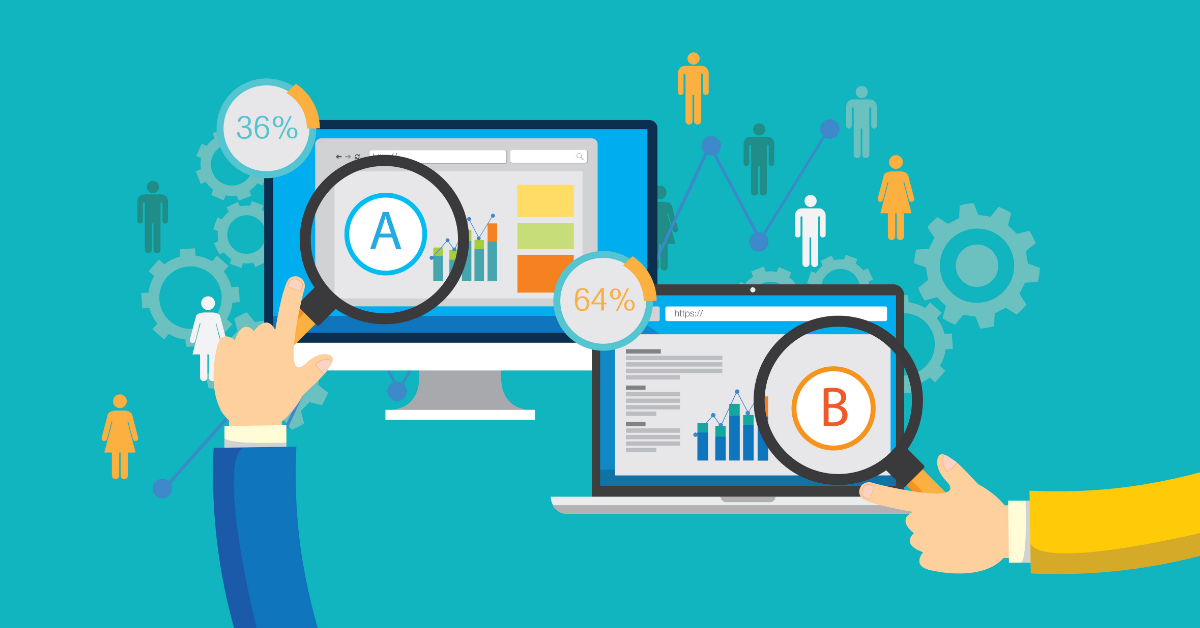Looking for ways to save time and money on repetitive marketing processes while driving higher customer engagement? Look no further, as Marketing Automation is the answer! Marketing Automation is an area of digital transformation (what is digital transformation?) that your business needs to adopt to improve your marketing workflow and customer experience.
In this article, we break down what Marketing Automation is, how it works, and the 7 tips on how to build a Marketing Automation Strategy – because there’s no better time to invest in it than right now.
What is Marketing Automation?
Marketing Automation is the digital technology that marketing teams use to automate marketing processes, and campaigns across multiple channels to maximise revenue and increase efficiency.
It isn’t a tool that you set and forget, and expect it to do all the work for you – but it will take a hell of a lot of the grunt work out of your marketing! Gone are the days when every single task needed someone to push a button – now, you can program personalised content for your audience that works away in the background while you focus on other important stuff.
What Does Marketing Automation Do?
Marketing Automation helps to simplify complex business processes by triggering actions based on consumer behaviour. It targets customers with personalised messages across multiple channels through their website, social media platforms, email and text. In addition to that, Marketing Automation can help with lead generation, nurturing, scoring and measuring your campaigns’ Return on Investment (ROI).
Marketing Automation Systems Can Help Businesses Do Lots of Amazing Things including:
- Personalisation
- Lead Generation and Qualification
- Campaign Delivery
- Identifying Your Target Audience
- Trigger Communications Based on Schedules and Consumer Behaviour
- Content Creation
- Event Management
- Generate Demand
In Hype and Dexter's experience, helping our clients grow through digital transformation has realised the benefits and reaped the rewards for those businesses and the people in them. But to really understand how Marketing Automation has affected the shift from traditional to Digital Marketing, we spoke with our Chief Marketing Officer (CMO) Alex Mackrill to get his take on it:
"The big shift that marketing automation has enabled is personalisation. Even 9 years ago in digital marketing, you couldn’t personalise at scale but you’ve never been able to do that with traditional marketing.In the early stages, it wasn’t practical to personalise the content and the customer journey. At the highest level, Marketing Automation uses data from the user – what we know about them from the interactions they have on our website, and it allows businesses to configure rules for a marketing strategy and individual campaigns."
3 Reasons You Need Marketing Automation
1. Personalised Solution
It shows your customers that you value them and they’re satisfied in return. Your customers receive a personalised solution that saves you time and resources that are better focused on increasing the effectiveness and ROI of your marketing campaigns.
2. Handles Time-Consuming Tasks and Reduces Human Error
Automating repetitive mundane tasks like writing emails, posting on social media, and manually creating campaigns helps save time and reduce human error for your team to freely tackle tasks that require problem-solving skills.
3. Higher Customer Engagement and Return on Investment (ROI)
Marketing Automation will help save time and money and can easily be scaled as your business grows in size and complexity.
How Does Marketing Automation Work?
So you might be wondering “how exactly does Marketing Automation work?” Businesses collect data through engagements via emails, web visits, social media and more, to draw insights into the wants and needs of their customers, and create personalised marketing campaigns. This data also helps to segment consumers into target audiences, and create customer profiles to tailor content they can relate to. With relevant personalised content across multiple platforms, businesses encourage consumers to interact with them to receive highly engaging experiences.
Being a HubSpot Certified Elite Agency Partner, we use HubSpot CRM to automate tasks from simple email workflow setups, right through to implementing full marketing campaigns. HubSpot helps us streamline our marketing tasks by integrating our team, tools and data all together in one place.
Marketing Automation has worked wonders for us but if a business does not put in the work to implement it properly, they may face bigger problems down the road. So how does one fail? To answer this, we turned back to Alex to get his thoughts on why Marketing Automation can fail.
"Failure happens when you try to run before you can walk. Complexity can come, but start simple, and add complexity over time."
What Are The Benefits of Marketing Automation?
Fun fact - 63% of Companies are outperforming competitors with help from Marketing Automation. Below, we’ve highlighted some of the key benefits of marketing automation and how it can drive the performance of your business.
- Increased Productivity
- Improved Accuracy
- Greater ROI
- Customer Relationships
- Improved Tracking on Campaign Performance
- More Engaged customers
What Does Marketing Automation Look Like For The Customer?
Marketing Automation provides customers with relevant and personalised content when, where and how they want it – for a smooth ongoing journey with every interaction. It provides consumers with the convenience to interact with a brand across multiple channels, reducing the friction in the customer journey and only displaying the content they find useful.
Timely and relevant content, along with a positive customer experience will increase their engagement, satisfaction, and loyalty, which will convert prospects into lifelong brand ambassadors.
“It's not what you sell that matters as much as how you sell it!”
7 Tips on How To Build a Marketing Automation Strategy
Now that you know what it is and how it works, you need to build a Marketing Automation Strategy to implement across your business. Here are the 7 best practices we think you should keep in mind to create and implement a marketing automation strategy.
- Define and Present Your Goals
Use real numbers to plead your case to your stakeholders to invest in a marketing automation platform. - Team Collaboration
Your marketing automation software will likely integrate across several departments in your company, so it’s worth getting input from teams across the business before investing. - Map Out the Customer Journey for Visualisation
Create a detailed diagram of your marketing automation workflow to showcase your goals and challenges to your wider organisation to get them across it, and to work efficiently and effectively. - Prepare Customer Segmentation
Discuss the insights you want to gather from your customer data to determine the target audience you’d like to engage and why. - Create a Content Strategy
Build a content library to create relevant, interesting and engaging content that encourages customer engagement in all stages of the customer journey. - Plan Accordingly For a Slow Rollout
It’s best practice to stagger the launches and to test early, to optimise the next set of tools and to ensure the best chance of success possible. - Analyse Continuously
Always analyse what’s working well and what’s not so that you can adapt accordingly. Use the time that Marketing Automation tools save you and get stuck into the analytical side of things to make changes that can grow and improve your business.
What's The Best Piece of Advice For Businesses Looking to Adopt Marketing Automation?
"Start simple and add complexity over time. Understand the customer and the problem they’re looking to solve. Map out their journey to the fullest extent with what they’re likely to be looking at and how you can provoke a positive reaction to the problem. Position your product or service as the solution to their problem and deliver the key messages they need at different stages of the buyer journey.
Remember that Marketing Automation is not a strategy, but it is a tool that helps you deliver at least part of your marketing strategy. And allows you to be smarter, more streamlined and efficient, and use data and segmentation effectively for personalisation."
- Alex Mackrill, Hype & Dexter CMO
The Name’s Dexter, Hype & Dexter
We’re not trying to toot our own horn, but when it comes to Marketing Automation, we’re good at what we do. We have experience working with customer bases that have over half a million people and help you build strategies and campaigns that we test, optimise and scale to knock out your business goals.
Don’t believe us? Chat with us to see how your business could benefit from Marketing Automation, and how you can achieve your business objectives and grow your company.






Comments